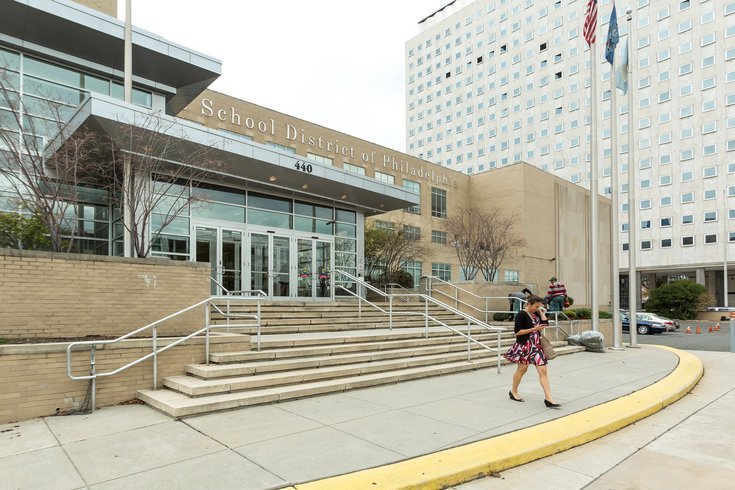
February 08, 2023
 Thom Carroll/for PhillyVoice
Thom Carroll/for PhillyVoice
Pennsylvania's school funding formula violates the state's constitution, Commonwealth Court Judge Renee Cohn Jubelirer ruled Tuesday in a landmark case.
Pennsylvania's system of funding schools violates the state's constitution and the rights of students to receive quality education, a judge ruled Tuesday. The landmark case stems from a nearly decade-old lawsuit filed by a group of school districts, parents and advocates who argued that poorer communities have inadequately funded schools.
In her 796-page decision, Commonwealth Court Judge Renee Cohn Jubelirer wrote that Pennsylvania's reliance on property values to determine K-12 district funding has deprived poorer communities of the opportunities and resources enjoyed by students in more affluent school districts.
"The disparity among school districts with high property values and incomes and school districts with low property values and incomes is not justified by any compelling government interest nor is it rationally related to any legitimate government objective," wrote Jubelirer, a Republican who has served on the Commonwealth Court since 2002.
The Public Interest Law Center, which supported the plaintiffs in the case, celebrated the decision. The ruling came after a three-month trial that ended nearly a year ago.
"We proved that the students who need the most have the least, because the state shortchanges low-wealth communities," the organization said. "It's time to change that."
Pennsylvania has among the worst educational opportunity gaps in the country based on race and income, according to a dashboard maintained by Philadelphia-based Research for Action, a policy group that assesses student access to quality education. The state ranks 45th in the nation for its share of education funding, with the vast majority of basic appropriations allocated through a system that does not factor in costs related to poverty, English language learners, charter enrollment and tax base discrepancies.
In addition to suffering poor educational outcomes, many underfunded schools in the state lack basic resources such as up-to-date textbooks and technology, sufficient staffing and regular building maintenance to provide students with safe and conducive learning environments.
Democratic state lawmakers applauded the ruling, which came on the same day that the party shored up control of the House in a series of special elections in Allegheny County.
“This is a major victory for the students, their teachers, and for all Pennsylvanians," said state Sen. Vincent Hughes, who chairs the Appropriations Committee and represents parts of Philadelphia and Montgomery counties. "The ruling makes clear what we’ve been raising the alarm about and fighting to fix for many years: Pennsylvania’s school funding system is unfair, inequitable, inadequate and has been hurting our students. All of our children deserve a 21st century education."
It's unclear whether Republican legislators who opposed the lawsuit plan to appeal the case. Former Gov. Tom Wolf had battled with Republican lawmakers over efforts to increase annual funding for school districts in recent years, compromising on how much more to give to struggling communities.
During the course of the litigation, the Pennsylvania Attorney General's Office had filed an amicus brief in support of the lawsuit. Acting Attorney General Michelle Henry said her office is still reviewing the ruling.
"(We) were gratified to learn today that the Court agreed with our position, paving the way for Pennsylvania lawmakers to come together to create a new system that works for all children and families," Henry said.
Former AG Josh Shapiro, who will present his first budget as governor next month, also said his administration is reviewing the ruling.
Dan Urevick-Ackelsberg, a lawyer with the Public Interest Law Center, said at a press briefing Tuesday that he expects the governor's budget proposal to reflect an effort to bring the state into "constitutional compliance."
The School District of Philadelphia, which stands to be a major beneficiary of an overhauled funding formula, did not immediately respond to a request for comment after the ruling. A district official had said in January that the ruling would have major ramifications for city schools.
"The outcome of the fair funding lawsuit can significantly impact our budget position and allow us to invest in our students, staff and schools," the spokesperson said.
With a budget of nearly $4 billion, the district ended the last fiscal year with a surplus of about $515 million. The district was allocated $1.1 billion in federal support as part of the pandemic-related American Rescue Plan Act in 2021, which will support a number of educational, student wellness and safety initiatives in the coming years.
But the district's chief financial officer, Uri Monson, warned last summer that a shortfall of $484 million is expected by 2027 as costs outpace revenue growth and ARPA dollars are spent.
During last year's trial, former Superintendent William Hite was among many experts who testified about the problems facing underfunded schools. Hite said the district was short $5,583 per student based on the existing, state-established benchmark for adequate funding.
Based on enrollment for the 2021-22 school year, nearly 72% of students in Philadelphia schools are classified as economically disadvantaged, according to data provided last month by the school district.
"Philadelphia is the poorest big city in the country," Hite said. "We have larger numbers of young people who don't have access to early childhood services and who aren't on grade level, those experiencing trauma, homelessness, are new to the country, have special needs, and those who need additional resources."
The Public Interest Law Center estimated that the School District of Philadelphia would need an additional $1.4 billion annually to meet the needs of its students.
In his State of the Union Address on Tuesday night, President Joe Biden called for broader investments in education, including raises for teachers and expanded funding for preschool, in order to remain competitive with other nations.
"When we made 12 years of public education universal in the last century, it made us the best-educated, best-prepared nation in the world," Biden said. "But the world has caught up."